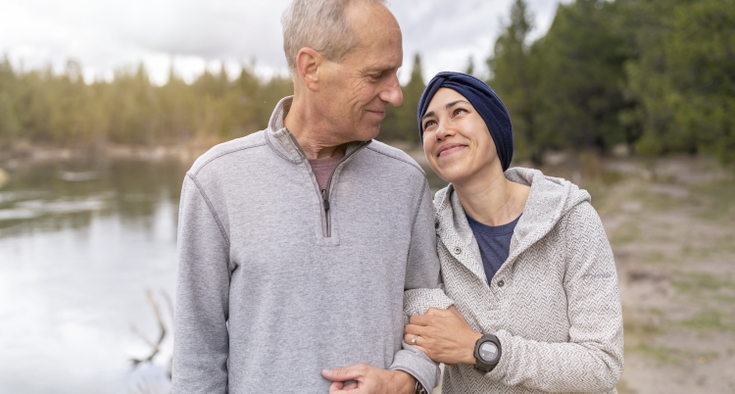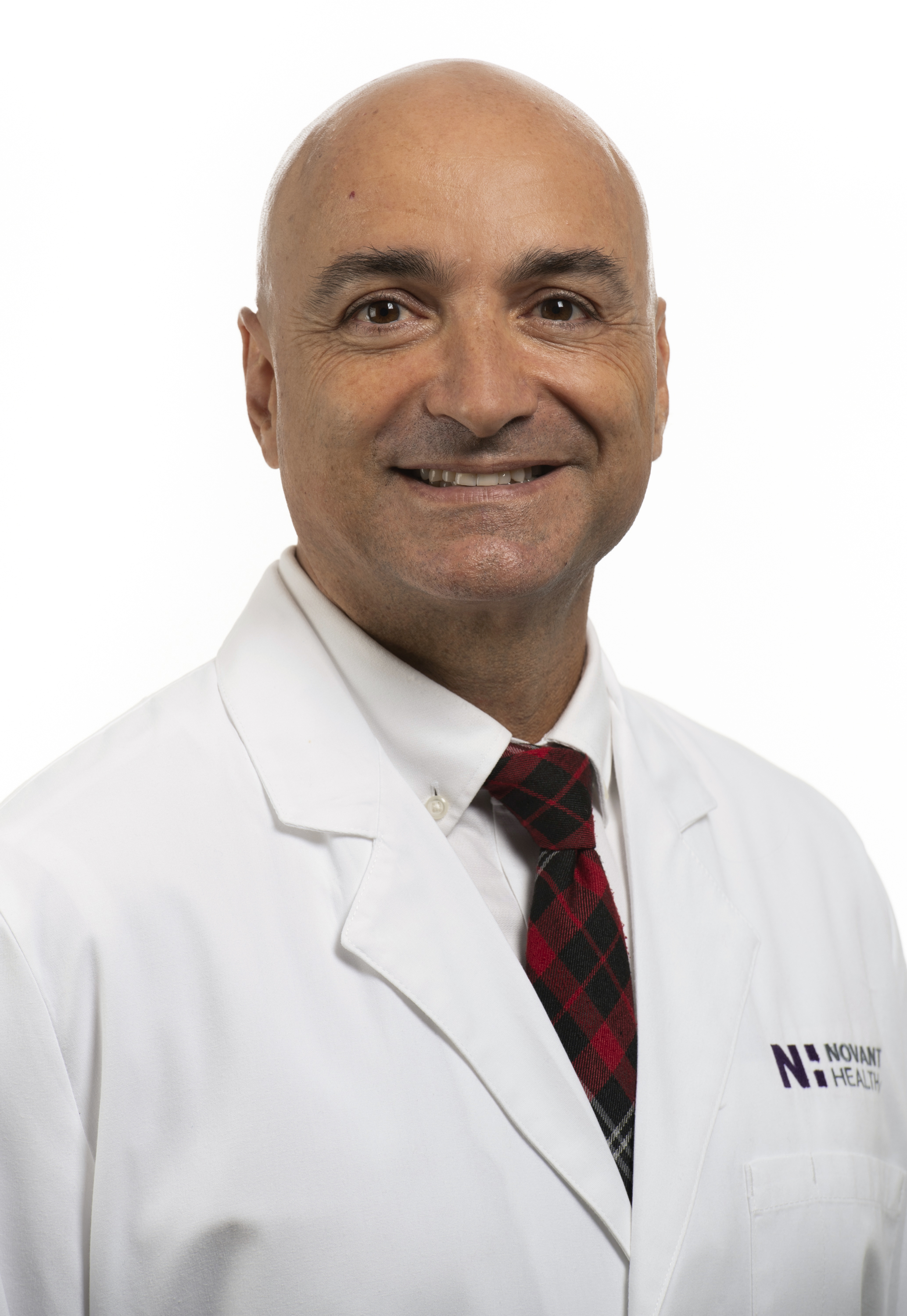Ten years ago, a Stage 4 cancer diagnosis was often considered a death sentence.
But that’s not true today.
Novant Health hematologist and oncologist Dr. Karim Tazi at Novant Health Cancer Institute – Huntersville said that even if a patient receives the unfortunate diagnosis of advanced cancer, there can be a lot of reasons to remain hopeful.
Not only does cancer treatment keep improving, but the long-term survival rate for patients with Stage 4 cancer has grown. As every month passes, Tazi said, oncologists have access to new data and new treatment methods that can prolong and improve quality of life.
Here are answers to common questions that patients ask about a Stage 4 four cancer diagnosis:
Empathetic care from dedicated cancer specialists.
How long do I have after Stage 4 cancer diagnosis?
Patients want to know how much longer they have left to live — they think in terms of three months, six months or a year. But I never put a timeline on it because I’d be wrong 100% of the time.
But it’s also important to be truthful. I always tell patients to prepare for the worst, but also give them tangible and real examples of patients who were able to control their cancer for many years.
Why this treatment?
Doctors can’t assume a particular treatment is best for every single patient. We must educate patients about their disease, available treatment options, answer their questions and help them decide what option is best for them. It’s important to go through the pros and cons of each one. Sometimes, one approach is more advisable than others, but it’s our job to explain to them why. Ultimately, patients will make their treatment decision depending on their values and goals.
If a patient says to me, “I don’t want to take this treatment,” I always ask why. I want to make sure they don’t have any misconceptions about their treatment, and I can help answer any questions they might have.
What’s the difference between cancer remission and a cure?
Remission means there’s no evidence of cancer and that it looks like the cancer has not come back. Generally, the odds of cancer returning decreases over time. If we talk about a patient who had a curative intent treatment (like surgical oncology), we can say that they are “cured” at the five-year mark. This means the chance of this cancer returning is extremely small.
Can I just live with the cancer to avoid treatment side effects?
Top scores for safety in NC
Novant Health just received the most ‘As’ for patient safety in North Carolina from The Leapfrog Group. That includes Rowan Medical Center. With a focus on safety, quality and patient experience, the national, industry-leading nonprofit, evaluates and assigns letter grades ranging from A to F to hospitals across the country. Novant Health’s hospitals with “A” grades outperform 70% of hospitals nationwide for safety and quality.
Cancer isn’t like a heart attack. Unfortunately, advanced, untreated cancer can cause a lot of suffering, pain and complications before leading to death. Cancer treatment can help minimize those symptoms.
There are two main goals of cancer treatment:
- Cure or prolong life as much as possible
- Decrease symptoms from the cancer itself to improve well-being
Cancer treatments can improve a patient’s quality of life by shrinking the cancer. They are also significantly less toxic than they were years ago. We have learned to manage side effects effectively. To maximize quality of life, cancer treatment can be changed based on side effects.
I encourage my patients to explore cancer treatment options, along with combining their treatment with palliative therapies. These are therapies that can help manage symptoms like pain, nausea and anxiety. Novant Health has a palliative care team that can help patients navigate options.
Tell us more about the immunotherapy treatments that Novant Health offers.
Immunotherapy is a class of cancer treatments that harnesses the patient’s own immune system to fight cancer. This has been the most important and impactful cancer advance over the past 10 years.
Novant Health offers many different immunotherapies, including:
- Immune checkpoint inhibitors: This type of immunotherapy is effective in a wide variety of cancers, including lung, skin, breast, head and neck, esophageal, biliary and blood cancer. In this treatment, specialized antibodies pull the immune system’s brakes off and therefore boost the natural anti-cancer immune response.
- CAR T-cell therapy: This is typically used in blood cancers. To simplify, the patient’s immune cells are collected and then processed in the lab to “teach” them to fight the cancer. The cells are then re-infused in the patient.
- Monoclonal antibodies: These are immune system proteins artificially created to target and kill cancerous cells in a patient’s body.
How do you factor in someone’s age when discussing treatment options?
We don’t look at the numerical age as the determinant factor. We look at the person’s biological age. We also evaluate their overall fitness and if they have any other illnesses, their quality of life and social support. Many older patients, even older than 80 or 90, can sometimes benefit from cancer treatment if they are carefully selected.
Why do you encourage patients to bring a family member or friend to their appointments?
Patients find it comforting to have family or friends with them. These appointments can be emotionally overwhelming. Family members can help process the information and ask important questions. I often invite family members to attend the consultation through video conference, if it’s possible. I also communicate with their family throughout their cancer treatment.
Stage 1: Cancer has not spread and is isolated to a small area.
Stage 2: The cancer is larger, but it still hasn’t spread.
Stage 3: The cancer is larger and may have spread.
Stage 4: The cancer is larger and has spread to other parts of the body. It’s sometimes called advanced cancer or metastatic cancer, another phrase used to describe cancer that has spread.








